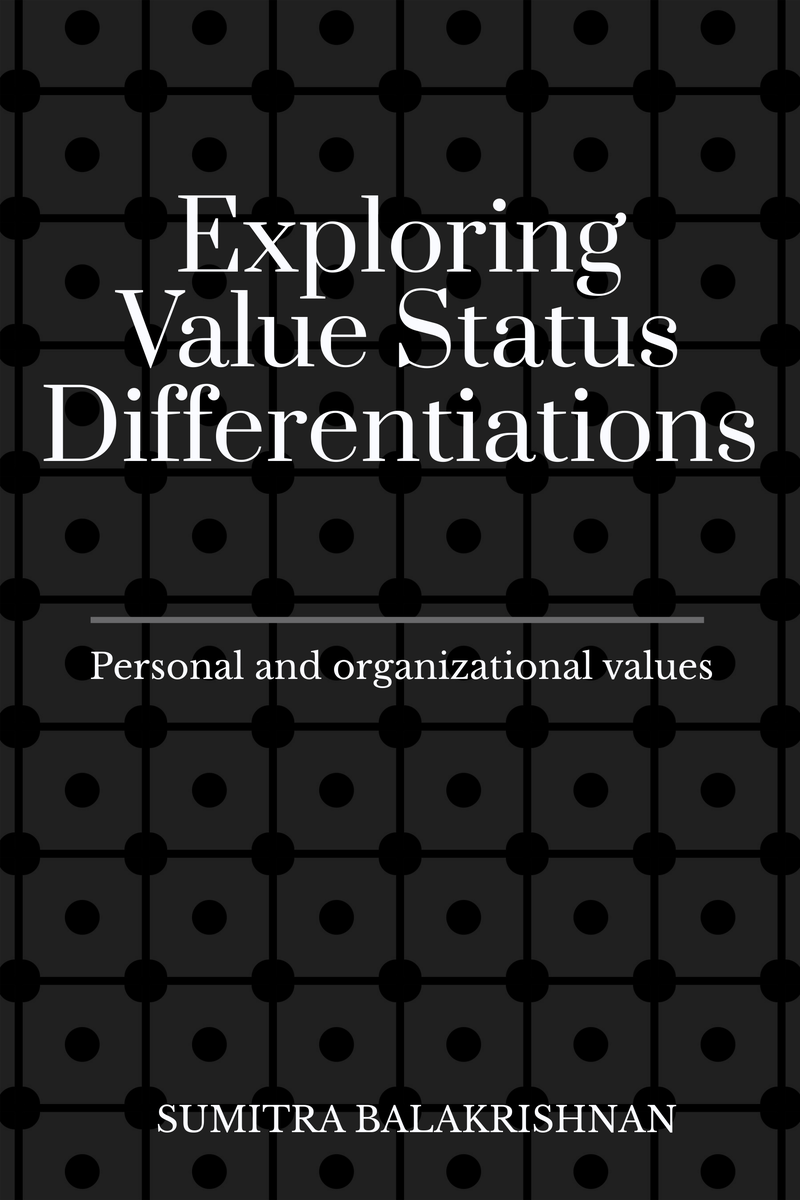
Toolbar


Educational & Professional | 6 Chapters
Author: Sumitra Balakrishnan
Introduction Indian cultural values have always been upheld in practice and principle. But, when there is any practice that is not co-linear to the ‘taught’ or ‘imbibed’ values, then the person faces an ‘ethical’ dilemma. This is also seen when the profession guides or coaxes the person to do something in his area of work that may not be seen by him as ‘morally’ correct or a right practice. Is the ....
Ethics are crucial for any organization and very important for its effective functioning. People who work in and for the organization are effective contributors to its success. In today’s world, people-centric companies are (usually) more successful compared to organization-centric ones. What are the reasons for this success? Is it because of the people or the company? Or is it because of both factors working in tandem?
Over the last decade, when attrition has been at an alarming high, companies strive to capitalize on this ‘fifth’ factor of production- the human capital, which is different from labour- the ‘intellect’ which leads to ‘innovation’.
Most companies ‘value’ their employees and retain the best talent. But, what about them as part of the organization? Aside from valuable contributors to production, operation and management, how instrumental are they as effective participants in the decision making process?
An Indian is brought up with strict ‘values’, ethics and a moral system. Is it a requirement, an asset or a regulatory method? Is it a cause-effect relation or a problem-solution one? Is it the result of the 3Ns -Nature, Nurture and Necessity and the erudite process of socialization?
How does the individual reason with and seek equilibrium with his judgement or a ‘dictat’ if a stated course of action is different? Does he choose to expres his opinion about his values? What factors are vital to the employee’s expressing his opinion about this value congruence or more importantly, incongruence at the workplace?
The failure to resolve inner conflicts of cherishing Indian cultural values at the personal level and maintaining high standards of objectivity at the professional level was reflected in methodologically sophisticated but socially irrelevant research.

Educational & Professional | 6 Chapters
Author: Sumitra Balakrishnan
Support the author, spread word about the book to continue reading for free.
Exploring Value Status Differentiations-personal and organizational values
Comments {{ insta_features.post_zero_count(insta_features.post_comment_total_count) }} / {{reader.chap_title_only}}
{{ (txt.comment_text.length >= 250 ) ? txt.comment_text.substring(0,250) + '.....' : txt.comment_text; }} Read More
{{ txt.comment_text }}
{{txt.timetag}} {{(txt.comment_like_count>0)? txt.comment_like_count : '' }}{{x1.username}} : {{ (x1.comment_text.length >= 250 ) ? x1.comment_text.substring(0,250) + '.....' : x1.comment_text; }} Read More
{{x1.comment_text}}
{{x1.timetag}} {{(x1.comment_like_count>0)? x1.comment_like_count :''}}{{x2.username}} : {{ (x2.comment_text.length >= 250 ) ? x2.comment_text.substring(0,250) + '.....' : x2.comment_text; }} Read More
{{x2.comment_text}}
{{x2.timetag}} {{(x2.comment_like_count>0)?x2.comment_like_count:''}}